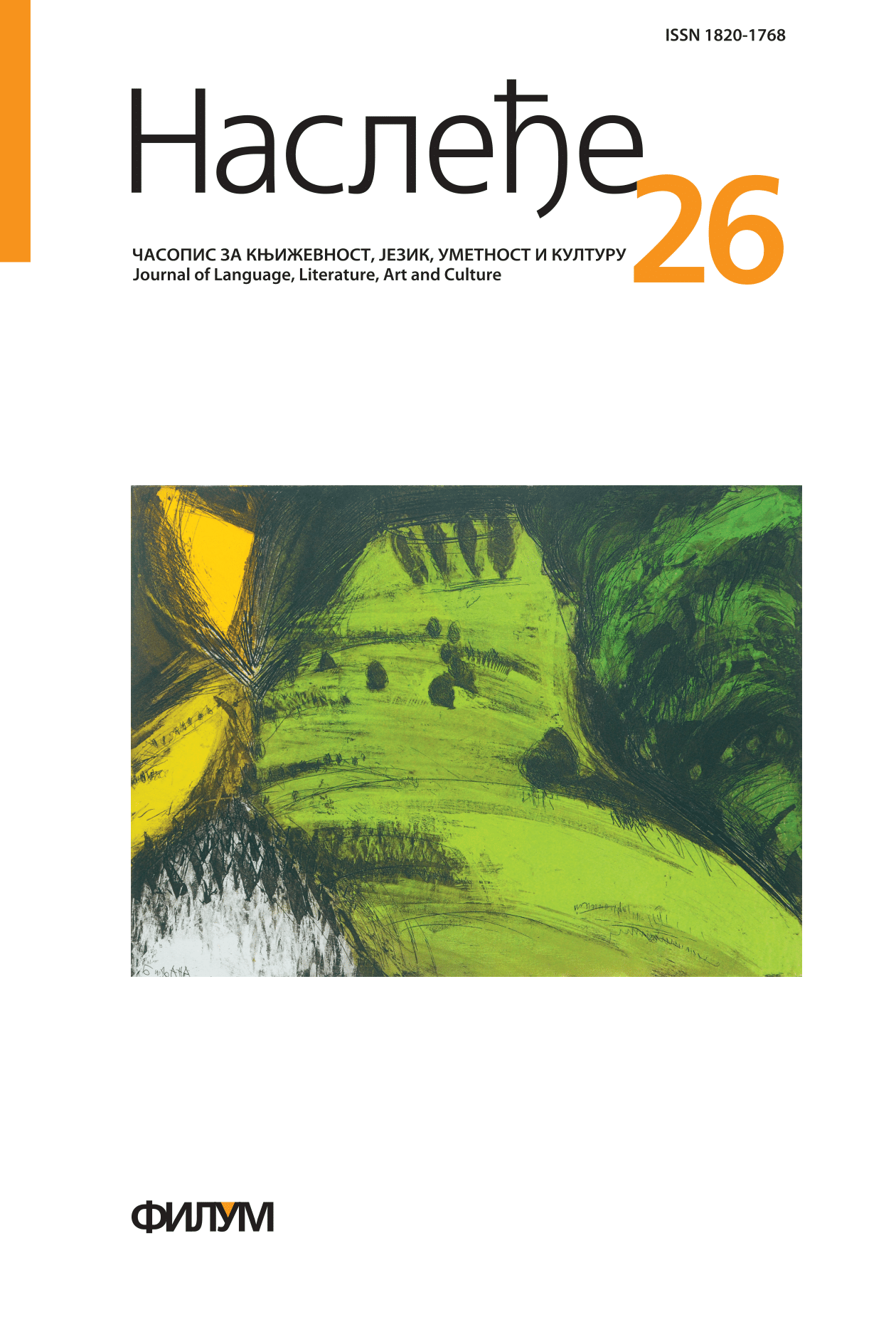ETHICAL ISSUES IN TESTING LANGUAGE COMPETENCES
Keywords:
ethical issues in language testing, test bias, standardized language tests, testing immigrantsAbstract
Considering the fact that language tests are developed and administered within communities so as to serve a multitude of purposes and goals, as well as the fact that serious decisions are made on the basis of test scores, in this paper we take ethical perspective to examine test use in relation to test design. In the first part of the paper we emphasise the central role that construct definition plays in eliminating or reducing test bias and constructirrelevant variance effects, which may contaminate test scores and jeopardize validity of decisions made on the basis of such scores. Then we move on to analyse standardized language tests which may disfavour economically vulnerable groups of test takers, thus disabling them from pursuing professional and educational mobility. Finally, we underline the most disputable practice which language testing has been engaged in – testing immigrants in order to achieve not only explicit but also implicit political and ideological goals. Since all the ethical issues we observe here can be resolved in practice, the purpose of this paper is to urge test developers and test users that they should mitigate the negative effects which may emerge.
References
Алдерсон и др. 1995: C. Alderson, Clapham, C., & D. Wall, Language Test Construction and Evaluation. Cambridge: Cambridge University Press.
Алдерсон 2000: J. C. Alderson, Assessing Reading. Cambridge: Cambridge University Press.
Бакман и Пурпура 2008: F. Bachman, & E. J. Purpura, Language Assessments: Gate-Keepers or Door-Openers? In B. Spolsky, & F. Hult (Eds.), The Handbook of Educational Linguistics (pp. 456-468). Oxford: Blackwell Publishing.
Бакман 1990: L. F. Bachman, Fundamental Considerations in Language Testing. Oxford: Oxford University Press.
Бакман и Палмер 1996: L. F. Bachman, & A. S. Palmer, Language Testing in Practice. Oxford: Oxford University Press.
Бак 2001: G. Buck, Assessing Listening. Cambridge: Cambridge University Press.
Карлсен 2009: C. Carlsen, Crossing the bridge from the other side: the impact of society on testing. Language Testing Matters: Investigating the wider social and educational impact of assessment. 31, pp. 344-356. Cambridge: Cambridge University Press.
Шапел 2001: C. A. Chapelle, Computer Applications in Second Language Acquisition. Cambridge: Cambridge University Press.
Шапел и Даглас 2006: C. A. Chapelle, & D. Douglas, Assessing Language through Computer Technology. Cambridge: Cambridge University Press.
Даглас 2000: D. Douglas, Assessing Languages for Specific Purposes. Cambridge: Cambridge University Press.
Елдер 1998: C. Elder, What counts as bias in language testing. Melbourn Papers in Language Testing , 1 (7).
Фалчер 2003: G. Fulcher, Interface design in computer-based language testing. Language Testing , 20 (4), 384-408.
Фалчер 2009: G. Fulcher, Test Use and Political Philosophy. Annual Review of Applied Linguistics , 3-20.
Хаферник и др. 2002: J. Hafernik, Messerschmitt, D., & S. Vandrick, Ethical Issues for ESL Faculty: Social Justice in Practice. Mahwah, NJ: Lawrence Erlbaum Associates INC.
Џоунз и Савил 2008: N. Jones, & N. Saville, Scales and Frameworks. In B. Spolsky, & F. M. Hult (Eds.), The Handbook of Educational Linguistics (pp. 495-510). Oxford: Blackwell Publishing.
Кунан 2005: A. J. Kunnan, Language assessment from a wider context. In E. Hinkel (Ed.), Handbook of research in second language teaching and learning (pp. 779-794).
Луома 2004: S. Luoma, Assessing Speaking. Cambridge: Cambridge University Press.
Мек-Намара 2004: T. McNamara, Language Testing. In E. Davies, & C. Elder (Eds.), The Handbook of Applied Linguistics (pp. 763-783). Blackwell Publishing.
Милановић 2010: M. Milanović, Test task characteristics in high-stakes Internetdelivered tests of English: Test task characteristics in the Listening and Reading sections of the TOEFL-iBT. Neobjavljena master teza. Beograd: Filološki fakultet.
Пурпура 2004: J. E. Purpura, Assessing Grammar. Cambridge: Cambridge University Press.
Шоами 2007: E. Shohamy, Tests as Power Tools: Looking Back, Looking Forward.
In J. Fox, M. Wesche, D. Bayliss, L. Cheng, E. C. Turner, & C. Doe (Eds.), Language Testing Reconsidered (pp. 141-152). Ottawa: University of Ottawa Press.
Темплар 2004: B. Templar, High-Stakes Testing at High Fees: Notes and Queries
on the International English Proficiency Assessment Market. Journal for Critical Education Policy Studies , 2 (1).
Вигл 2002: S. C. Weigle, Assessing Writing. Cambridge: Cambridge University Press.
Вир 2005: C. J. Weir, Language Testing and Validation. New York: Palgrave MacMillan






